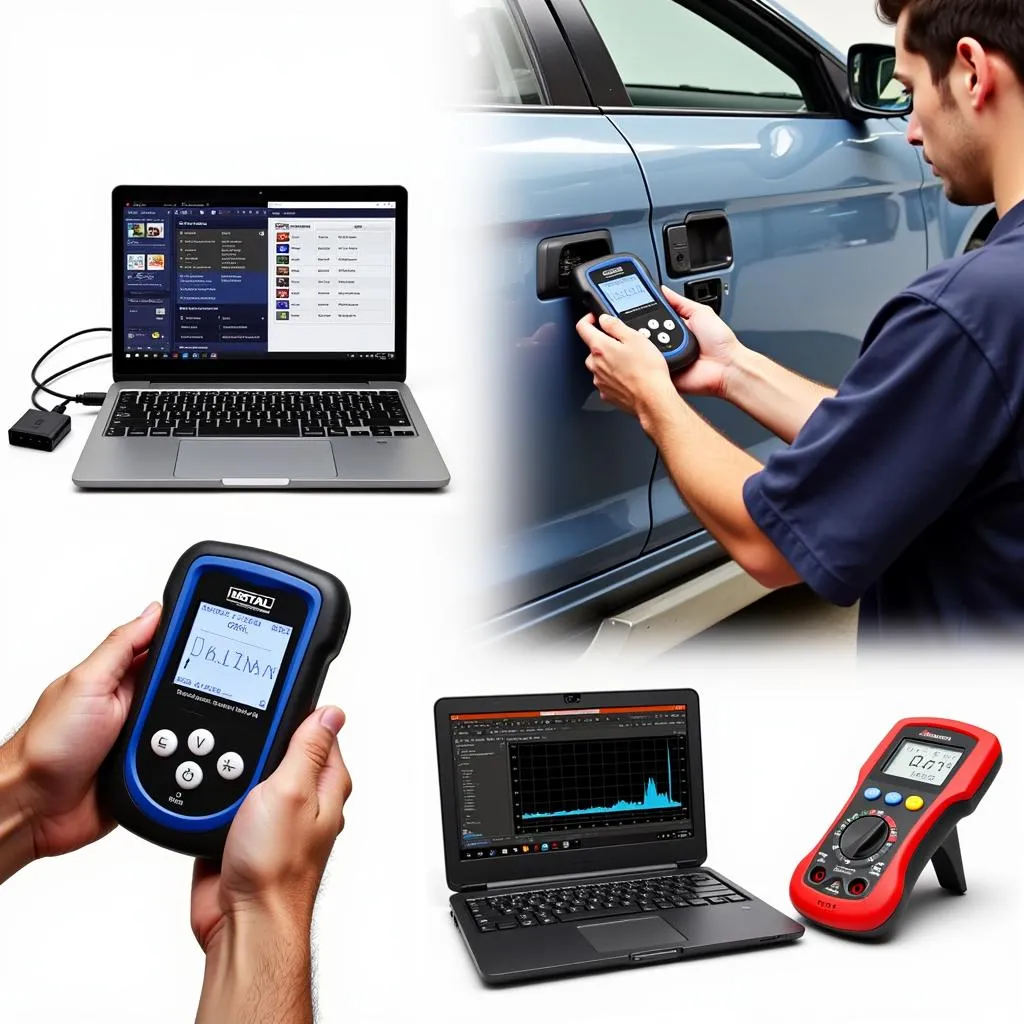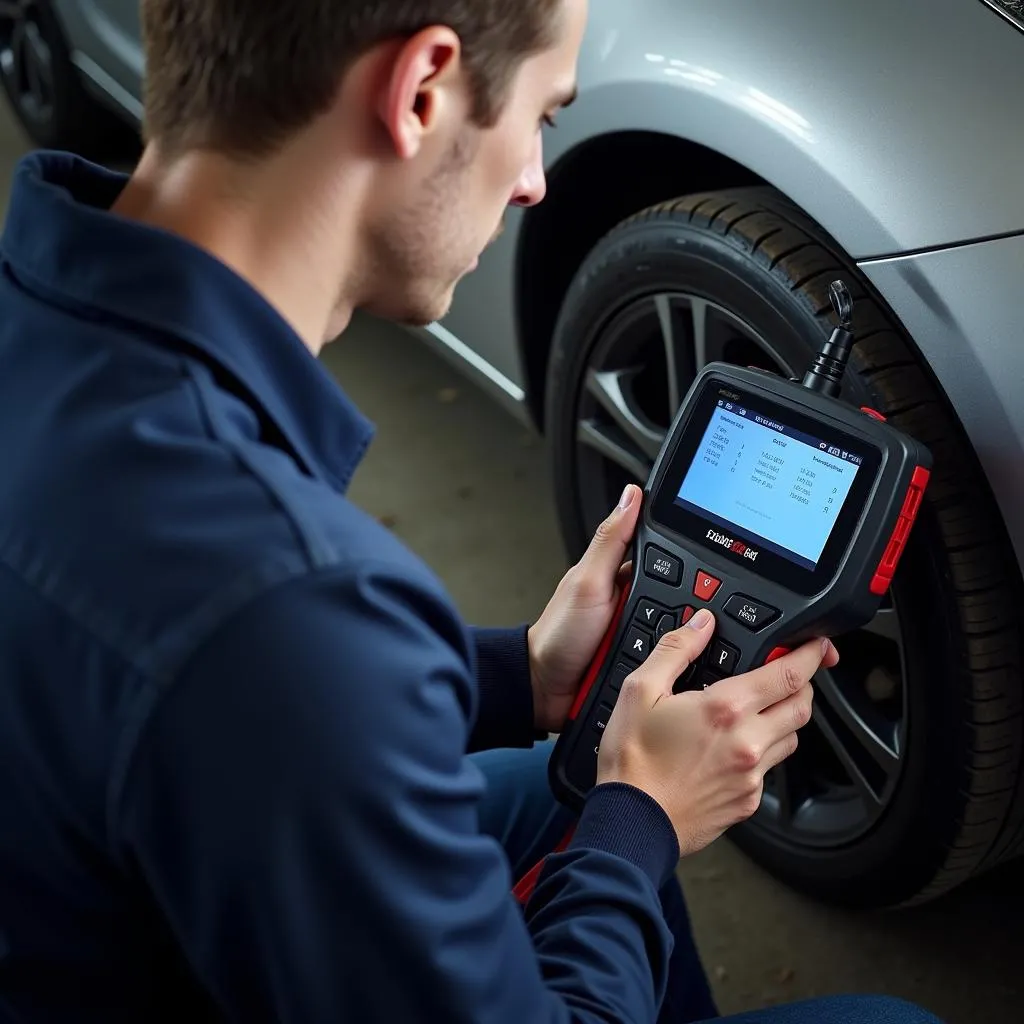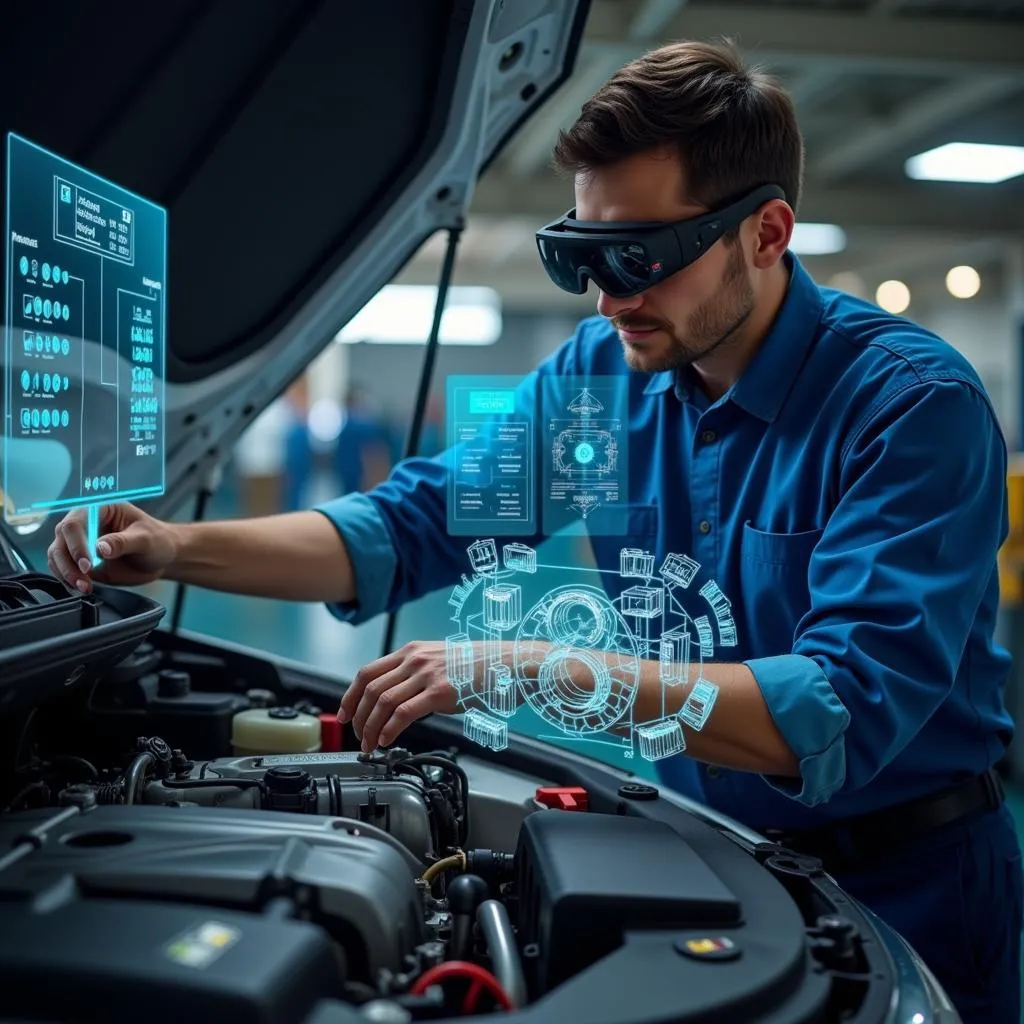Vehicle diagnosis is no longer a guessing game of sounds and smells. Modern vehicles are complex machines, relying on intricate networks of sensors, computers, and electronic systems. A single malfunction in any of these components can lead to a domino effect, causing issues ranging from minor inconveniences to major breakdowns. This is where vehicle diagnosis comes in, utilizing advanced technology to pinpoint the root cause of problems quickly and accurately.
 Modern Car Diagnostic Tools
Modern Car Diagnostic Tools
The Evolution of Vehicle Diagnosis: From Guesswork to Precision
Gone are the days when mechanics relied solely on their senses and experience to diagnose car problems. The advent of onboard computers in the 1980s revolutionized vehicle diagnosis, paving the way for the sophisticated diagnostic scanner we have today. These scanners act as a direct line of communication with a vehicle’s computer system, reading stored error codes, monitoring live data streams, and providing invaluable insights into the health of a vehicle.
The Power of Diagnostic Scanners in Modern Vehicle Diagnosis
Diagnostic scanners have become indispensable tools for mechanics and car enthusiasts alike. Here’s why:
- Accurate Problem Identification: By interpreting error codes and analyzing live data, scanners can precisely identify the source of a problem, eliminating guesswork and unnecessary repairs.
- Comprehensive System Coverage: Modern scanners can access multiple vehicle systems, including engine, transmission, ABS, airbags, and more, providing a holistic view of the car’s health.
- Enhanced Repair Efficiency: Accurate diagnosis leads to targeted repairs, saving time and money by avoiding unnecessary part replacements.
- Preventive Maintenance: Regular scans can detect potential issues before they escalate, allowing for timely maintenance and preventing costly breakdowns.
Choosing the Right Diagnostic Scanner for Your Needs
The market is flooded with a wide range of diagnostic scanners, each catering to different needs and budgets.
Factors to Consider When Selecting a Scanner:
- Vehicle Compatibility: Ensure the scanner supports the make, model, and year of your vehicle.
- Functionality: Basic scanners read and clear error codes, while advanced models offer live data streaming, bi-directional control, and special functions.
- User Interface: Opt for a scanner with an intuitive interface and easy-to-understand display.
- Software Updates: Regular software updates are crucial for ensuring compatibility with the latest vehicle models and diagnostic protocols.
 Mechanic Using Diagnostic Scanner on Car
Mechanic Using Diagnostic Scanner on Car
Beyond the Scanner: Understanding Vehicle Diagnostic Data
While scanners are powerful tools, it’s crucial to remember they are just that – tools. Interpreting the data they provide requires knowledge and expertise. Here’s a glimpse into the world of vehicle diagnostic data:
- Diagnostic Trouble Codes (DTCs): These alphanumeric codes represent specific malfunctions detected by the vehicle’s computer. Understanding the meaning of these codes is crucial for accurate diagnosis.
- Live Data Streams: Scanners can display real-time data from various sensors, providing insights into how different systems are performing. This data is invaluable for analyzing intermittent problems and confirming repair success.
- Special Functions: Advanced scanners offer special functions like component activation, adaptations, and module coding, allowing for in-depth diagnostics and advanced repairs.
The Future of Vehicle Diagnosis: Embracing Technology and Expertise
As vehicles become increasingly complex, the field of vehicle diagnosis continues to evolve. The future holds exciting advancements in areas like:
- Predictive Diagnostics: Utilizing artificial intelligence and machine learning to predict potential failures before they occur.
- Remote Diagnostics: Allowing mechanics to remotely access and diagnose vehicles, offering greater convenience and efficiency.
- Augmented Reality (AR) Assisted Diagnostics: Overlaying digital information onto the real world to guide technicians during repairs.
 Future of Vehicle Diagnosis with Augmented Reality
Future of Vehicle Diagnosis with Augmented Reality
Conclusion: Empowering Car Owners Through Vehicle Diagnosis
Understanding vehicle diagnosis is empowering. Whether you are a car enthusiast or simply want to be an informed car owner, having a basic understanding of how vehicle diagnosis works and the role of diagnostic scanners can save you time, money, and frustration. By embracing technology and seeking out qualified professionals, we can navigate the complexities of modern vehicles and keep them running smoothly for miles to come.